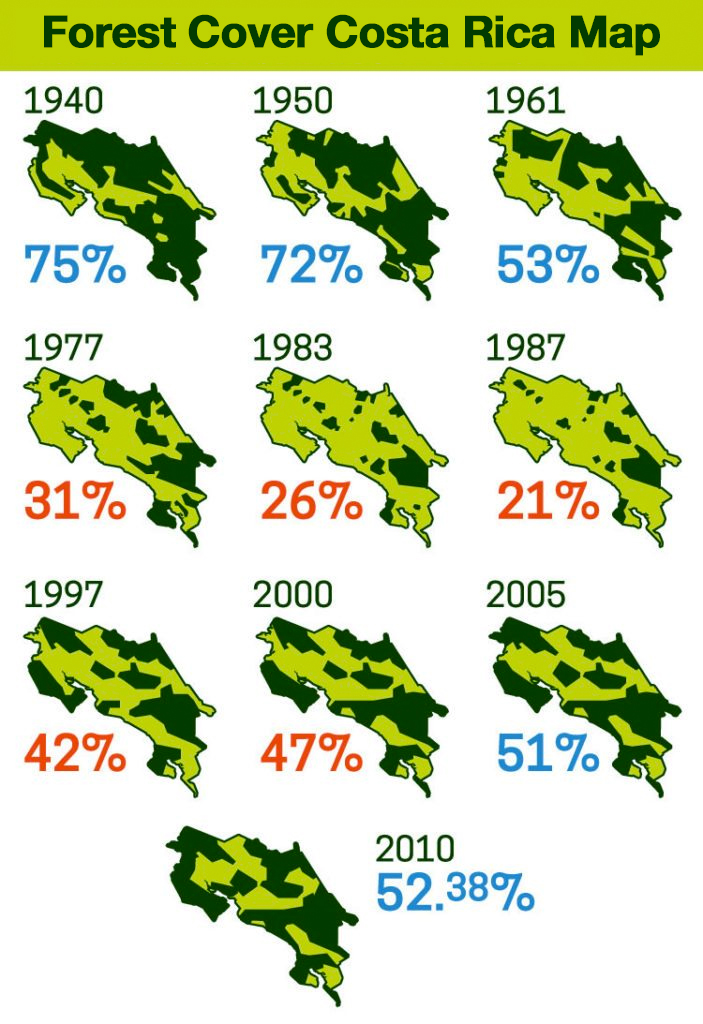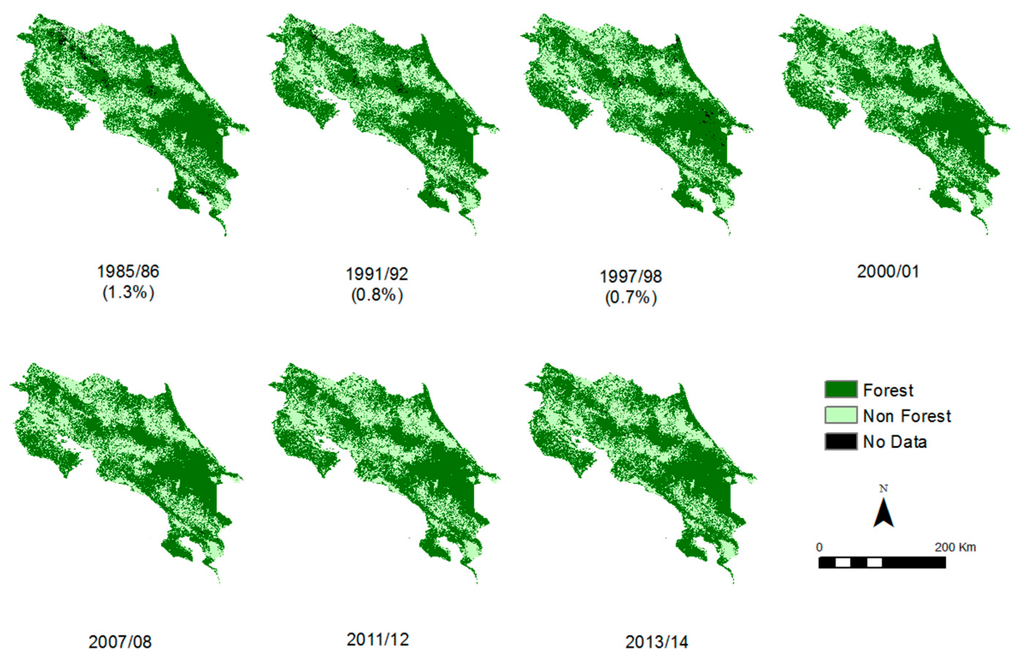Costa Rica Provides Reasons For Hope
Costa Rica Forests (circled, green), Regional Forest Fires (red), Mexico & Central America (credit: NASA, Tico Times)
Costa Rica has been named a Champion of the Earth by the UN Environment Program (UNEP). In conferring this designation, the Agency's highest environmental honor, the international body recognized this small nation's efforts in nature protection and its ambitious climate change policies. While fires torched rainforests in South America, Africa, and Australia, Costa Rica, Bhutan, and several others have taken a different path to environmental protection. They offer reasons to be hopeful others may choose to do likewise. The recognition was particularly timely as a climate change conference was in progress to establish practical goals.
The Costa Rican forest situation wasn't always so positive. In the 1940's, the Central American nation was nearly 80% covered by rainforests or tropical dry forests. By the 1990's, tree cover, outside national parks, had been reduced to ~20%. The nation generates virtually all its electricity from water-driven hydroelectric power stations and with their mountains deforested, the volume of water was greatly reduced, and in some cases once flowing rivers were dry. The Costa Rican's realized their direct connection between forested watersheds, water supplies, and electric power.


Costa Rican forest cover maps,1940-2014 (credit: NASA Landsat and Remote Sensing Case Study)
To reverse the deforestation, Costa Rica established a "payment for environmental services" (PES) program that provides farmers and landowners with an incentive to protect and restore tree cover on their land. A small 'user-fee' is added to every person's electricity bill to be used specifically for forest protection and restoration. PES changed a bad situation for the better. Forests now cover ~70% of the country's land area. Added benefits also included the return of its unique biodiversity making Costa Rica an international magnet for ecotourism.
This small nation is an example of what can be accomplished with dedication and innovative programs in environmental and economic sustainability. While forest situations vary in every county, Costa Rica has shown how to develop an environmental restoration program that works when nationally applied. Volunteer programs exist in other countries and can offer an educational and life changing opportunity for students to become involved in restoration and other community projects. Costa Rica illustrates why there are reasons for hope. WHB